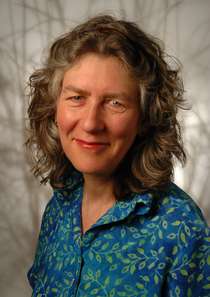The Other Place
“The Other Place,” an essay by faculty member Megan Staffel, appears in the Spring 2013 issue of Cerise Press.
When I went to graduate school in the seventies, there was a benign, laissez-faire attitude in the culture. The sixties were over. The Vietnam war had been brought to a close, and by the end of the seventies, a farmer from Georgia who was not only a pacifist, but a forward-looking thinker, occupied the White House. For a progressive, there was not much in the public life of the nation to inspire outrage. Carter instituted energy saving initiatives that made everyone, liberals and conservatives alike, in 1978, acknowledge that fossil fuels were limited and conservation was necessary. The speed limit was set at 55; thermostats were lowered to 68. We liked peanuts because that was what our president grew on his farm, and at least in my circles, we also liked small cars, down-filled vests to wear in our cooler houses, and meals featuring tofu. I was twenty-six and married, and just before I sent in my applications for graduate school, I hesitated: maybe I should dedicate my life to the soybean?
In those days there were many people who believed that this organic, low-on-the- food-chain, inexpensive, high quality protein was the answer to everything that was still wrong in the world, and I dutifully report that I shared that pastoral vision. But after working in a tofu factory for a short while, I realized that I was not suited for life in the world of reason. I needed a career that would exercise the run-away imagination I am always at the mercy of, and so I chose the life I have now, a writer and teacher of fiction, an occupation that places me not on the plateau of social advancement, but more happily, in the mud of human designs and desires.
At graduate school, the stories we discussed in workshop were printed with purple ink on smooth white paper that had the distinctive smell of the mimeograph machine. “I want to know more.” That’s what we said, over and over. For the author who had imagined a character bingeing on candy after dumping her long-term boyfriend, or the author who had imagined elephants walking down a city street, we always wanted to know more about the characters, the setting, the event. We were so greedy for background, the emphasis was always on expansion because new writers often don’t reveal enough; also, the adage show, don’t tell, was our mantra, and we heaped scene upon scene upon scene It was an expansive time in the culture: we were at peace, the economy was healthy, and the general outlook, from our mostly vegetarian kitchens, was optimistic. So perhaps it is not surprising that our fiction was expansive too.
Megan is the author of Lessons in Another Language: A Novella and Stories (2010, Four Way).




